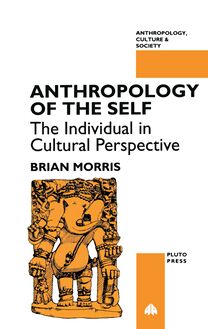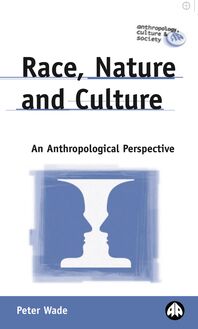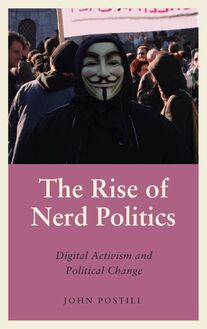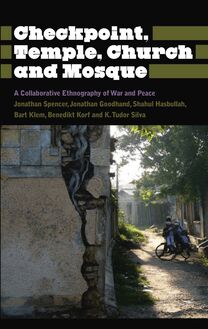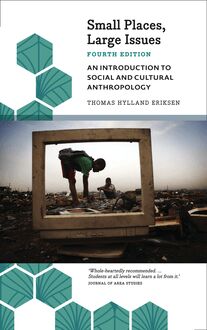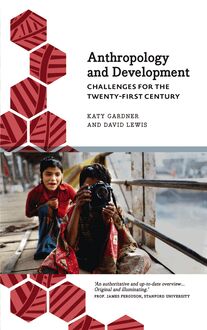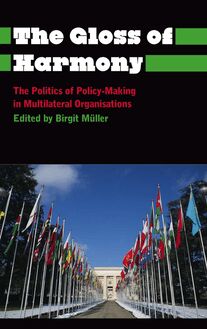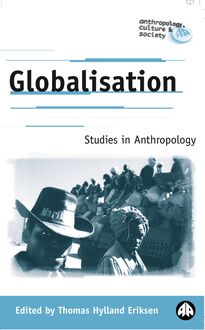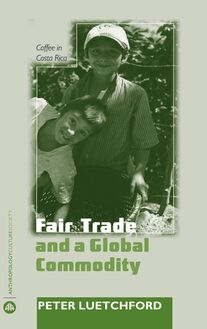-
 Univers
Univers
-
 Ebooks
Ebooks
-
 Livres audio
Livres audio
-
 Presse
Presse
-
 Podcasts
Podcasts
-
 BD
BD
-
 Documents
Documents
-
- Cours
- Révisions
- Ressources pédagogiques
- Sciences de l’éducation
- Manuels scolaires
- Langues
- Travaux de classe
- Annales de BEP
- Etudes supérieures
- Maternelle et primaire
- Fiches de lecture
- Orientation scolaire
- Méthodologie
- Corrigés de devoir
- Annales d’examens et concours
- Annales du bac
- Annales du brevet
- Rapports de stage
La lecture à portée de main
Vous pourrez modifier la taille du texte de cet ouvrage
Découvre YouScribe en t'inscrivant gratuitement
Je m'inscrisDécouvre YouScribe en t'inscrivant gratuitement
Je m'inscrisEn savoir plus
Vous pourrez modifier la taille du texte de cet ouvrage
En savoir plus

Description
Heritage research is often based on the assumption that heritage is something ‘given’ to us, that it is good and valuable in its own right. However, by looking at the historical and cultural roots of heritage and its development through the Enlightenment, modernity and capitalism, Pablo Alonso Gonzalez shows that it is in fact a system pervaded by fetishistic social relationships, embedded in capitalism, and not as benign as it appears.
Focusing on a case study in the region of Maragatería, Spain, Alonso Gonzalez explores the ethnic and racial discrimination towards the local population in the context of Spanish nationalism, and how this formed the region’s heritage today. By challenging mainstream scholarship in the field, The Heritage Machine rethinks the relations between heritage, ideology and capitalism.
List of Figures
Series Preface
1. Introduction
2. The Emergence of Heritage
3. Race, Ethnicity and Nationalism in Spain
4. The Subordination of Peasants in Maragateria
5. Before Heritage: 'Juntas Vecinales' and 'Tamboriteros'
6. Social Construction of Heritage in the Teleno Military Shooting Range
7. Pseudo-archaeology and the Critique of Heritage Epistemology
8. Return to the Countryside in Prada de la Sierra
9. The Heritage Machine in Val de San Lorenzo
10. The Spectacle of the Other and the Negation of Heritage
Bibilography
Index
Sujets
Informations
| Publié par | Pluto Press |
| Date de parution | 20 décembre 2018 |
| Nombre de lectures | 0 |
| EAN13 | 9781786803016 |
| Langue | English |
Informations légales : prix de location à la page 0,1650€. Cette information est donnée uniquement à titre indicatif conformément à la législation en vigueur.
Extrait
The Heritage Machine
Anthropology, Culture and Society Series Editors:
Jamie Cross, University of Edinburgh, Christina Garsten, Stockholm University and Joshua O. Reno, Binghamton University
Recent titles:
The Limits to Citizen Power: Participatory Democracy and the Entanglements of the State
V ICTOR A LBERT
Becoming Arab in London: Performativity and the Undoing of Identity
R AMY M. K. A LY
Anthropologies of Value
E DITED BY L UIS F ERNANDO A NGOSTO -F ERRANDEZ AND G EIR H ENNING P RESTERUDSTUEN
Ethnicity and Nationalism: Anthropological Perspectives Third Edition
T HOMAS H YLLAND E RIKSEN
Fredrik Barth: An Intellectual Biography
T HOMAS H YLLAND E RIKSEN
Small Places, Large Issues: An Introduction to Social and Cultural Anthropology Fourth Edition
T HOMAS H YLLAND E RIKSEN
What is Anthropology? Second Edition
T HOMAS H YLLAND E RIKSEN
At the Heart of the State: The Moral World of Institutions
D IDIER F ASSIN, ET AL .
Anthropology and Development: Challenges for the Twenty-first Century
K ATY G ARDNER AND D AVID L EWIS
Children of the Welfare State: Civilising Practices in Schools, Childcare and Families
L AURA G ILLIAM AND E VA G ULL V
Faith and Charity: Religion and Humanitarian Assistance in West Africa
E DITED BY M ARIE N ATHALIE L E B LANC AND L OUIS A UDET G OSSELIN
Private Oceans: The Enclosure and Marketisation of the Seas
F IONA M CCORMACK
The Rise of Nerd Politics: Digital Activism and Political Change
J OHN P OSTILL
Base Encounters: The US Armed Forces in South Korea
E LISABETH S CHOBER
Ground Down by Growth: Tribe, Caste, Class and Inequality in Twenty-First-Century India
A LPA S HAH , J ENS L ERCHE, ET AL
Race and Ethnicity in Latin America Second Edition
P ETER W ADE
The Heritage Machine
Fetishism and Domination in Maragater a, Spain
Pablo Alonso Gonz lez
First published in 2017 as El antipatrimonio: fetichismo y dominaci n en Magarater a by Editorial CSIC
First published 2019 by Pluto Press
345 Archway Road, London N6 5AA
www.plutobooks.com
Copyright Pablo Alonso Gonz lez 2019
The right of Pablo Alonso Gonz lez to be identified as the author of this work has been asserted by him in accordance with the Copyright, Designs and Patents Act 1988.
British Library Cataloguing in Publication Data
A catalogue record for this book is available from the British Library
ISBN 978 0 7453 3807 1 Hardback
ISBN 978 1 7868 0300 9 PDF eBook
ISBN 978 1 7868 0302 3 Kindle eBook
ISBN 978 1 7868 0301 6 EPUB eBook
This book is printed on paper suitable for recycling and made from fully managed and sustained forest sources. Logging, pulping and manufacturing processes are expected to conform to the environmental standards of the country of origin.
Typeset by Stanford DTP Services, Northampton, England
Simultaneously printed in the United Kingdom and United States of America
Contents
List of figures
Series preface
1. Introduction
2. The Emergence of Heritage
3. Race, Ethnicity and Nationalism in Spain
4. The Subordination of Peasants in Maragater a
5. Before Heritage: Juntas Vecinales and Tamboriteros
6. Social Construction of Heritage in the Teleno Military Shooting Range
7. Pseudo-archaeology and the Critique of Heritage Epistemology
8. Return to the Countryside in Prada de la Sierra
9. The Heritage Machine in Val de San Lorenzo
10. The Spectacle of the Other and the Negation of Heritage
Bibliography
Index
List of figures
1. Castrillo de los Polvazares, a village-museum widely adapted for tourism, preserving Maragato architecture
2. Maragater a between abandonment and modernisation
3. Demographic comparison between Maragato villages, the province of Le n and Spain during the twentieth century
4. Comparison of population loss between 1900 and 1930 in the municipalities of Le n
5. Mauregata portrayed by William Dalrymple in 1777
6. Maragatos in the farewell to the Nazi Condor Legion in Le n, 1939
7. Celebration of the II D a de las Comarcas in Castrillo de los Polvazares on 1 September 1962
8. King Juan Carlos II with a Maragato folk-dance group before his coronation
9. Members of the film crew of the show Paisanos of La 8 Le n , with two peasants
10. Tamboriteros in Buenos Aires and Val de San Lorenzo at the beginning of the twentieth century
11. Military training remains near Luyego: anti-personnel mine
12. Pe afadiel petroglyphs at night
13. Juan Carlos Campos, speaking with a group of elders in Chana
14. The Maragato Stonehenge
15. El Mentidero : returning emigrants exhibiting their left-wing newspapers
16. LIMASA factory and modern houses in Val de San Lorenzo
17. Inclusion of modern elements in houses and whitewashing of walls
18. La Comunal Textile Interpretation Centre after its heritagisation
19. Supermodern house in Val
20. A man ploughing in Val de San Lorenzo in the 1910s and a plough hung in a Maragato house in Santiago Millas
Series Preface
As people around the world confront the inequality and injustice of new forms of oppression, as well as the impacts of human life on planetary ecosystems, this book series asks what anthropology can contribute to the crises and challenges of the twenty-first century. Our goal is to establish a distinctive anthropological contribution to debates and discussions that are often dominated by politics and economics. What is sorely lacking, and what anthropological methods can provide, is an appreciation of the human condition.
We publish works that draw inspiration from traditions of ethnographic research and anthropological analysis to address power and social change while keeping the struggles and stories of human beings centre stage. We welcome books that set out to make anthropology matter, bringing classic anthropological concerns with exchange, difference, belief, kinship and the material world into engagement with contemporary environmental change, capitalist economy and forms of inequality. We publish work from all traditions of anthropology, combining theoretical debate with empirical evidence to demonstrate the unique contribution anthropology can make to understanding the contemporary world.
Jamie Cross, Christina Garsten and Joshua O. Reno
1
Introduction
This book is at once an essay that allows us to think differently about heritage, a set of stories about a region and its people, and the reflection of my personal career as a researcher. In it, I explore a territory where official heritage initiatives and public institutions have had little impact. However, the absence of institutions can be as pernicious as their dominating presence, if we observe how they undermine territories and societies. Heritagisation is understood as the dynamic through which objects, performances and places are turned into heritage. In Maragater a, these processes are difficult to predict and develop, according to parameters far removed from what is known as the authorised heritage discourse (Smith 2006). Elements that could be considered heritage from the point of view of global hierarchies of value are destroyed, abandoned or simply there . Other features have been exaggeratedly constructed as heritage, particularly Maragato identity and tradition. Due to rapid changes in the Spanish economy and a socioeconomic destructuring of the country, different subjects and social groups cohabit and interrelate uneasily in Maragater a. This is reflected in their values, space-time perceptions and ways of relating to one other. It also affects what heritage can mean in their ways of life. In Maragater a, social actors do not have differing or opposing views on heritage, rather they inhabit partially divergent frameworks of meaning, life-paths and worldviews.
In charting Maragater a, this book describes changes in the dominant patterns of relations between people, and between people and things, through the framework of heritage. This is not learning about heritage or defining it as if it were an essence. Instead, this book is about learning together with the actors and understanding how they came to be alongside the notion of heritage and the network of relationships in which they live. The goal in learning about these relationships is to understand heritage construction in the framework of capitalist systems of domination and to examine how heritage contributes to their reproduction. In this process, the working careers, capacities for action and powers of various actors in the territory are reorganised. This rearranges their competing tendencies towards egalitarian self-organisation and immanence, or towards the creation of hierarchies and abstract social relations through specific power relations. The interdisciplinary approach of this study is broad, as is typical in the field of heritage, but the view is at root anthropological, both for its solid grounding in ethnographic data and its main theoretical apparatus.
Learning From Maragater a, Unlearning About Heritage: Transversal Ideas
Salman Rushdie (1985, 15) commented on his novel Shame , about postcolonial Pakistan:
That s what Shame is. It s about as black a comedy as it s possible to write. And not for easy satirical reasons, but for naturalistic reasons. Because that seemed to be the only way that one could come somewhere close to describing the world that was there.
According to Veit-Wild (2005), the gifted young Zimbabwean writer Dambudzo Marechera (1992, 211) was reading Rushdie at the end of his life, and had this to say: I f one is living in an abnormal society, then only abnormal expression can express that society. Documentaries cannot. I thought the same thing, and making two documentaries about Maragater a confirmed it for me. I knew it, and my friends knew it: only a novel, or perhaps an essay, could really allow me to reveal something about the sort of sugar-coated magical realism that Maragater a evokes. It is no coincidence that hundreds of curious individuals, travellers and
-
 Univers
Univers
-
 Ebooks
Ebooks
-
 Livres audio
Livres audio
-
 Presse
Presse
-
 Podcasts
Podcasts
-
 BD
BD
-
 Documents
Documents
-
Jeunesse
-
Littérature
-
Ressources professionnelles
-
Santé et bien-être
-
Savoirs
-
Education
-
Loisirs et hobbies
-
Art, musique et cinéma
-
Actualité et débat de société
-
Jeunesse
-
Littérature
-
Ressources professionnelles
-
Santé et bien-être
-
Savoirs
-
Education
-
Loisirs et hobbies
-
Art, musique et cinéma
-
Actualité et débat de société
-
Actualités
-
Lifestyle
-
Presse jeunesse
-
Presse professionnelle
-
Pratique
-
Presse sportive
-
Presse internationale
-
Culture & Médias
-
Action et Aventures
-
Science-fiction et Fantasy
-
Société
-
Jeunesse
-
Littérature
-
Ressources professionnelles
-
Santé et bien-être
-
Savoirs
-
Education
-
Loisirs et hobbies
-
Art, musique et cinéma
-
Actualité et débat de société
- Cours
- Révisions
- Ressources pédagogiques
- Sciences de l’éducation
- Manuels scolaires
- Langues
- Travaux de classe
- Annales de BEP
- Etudes supérieures
- Maternelle et primaire
- Fiches de lecture
- Orientation scolaire
- Méthodologie
- Corrigés de devoir
- Annales d’examens et concours
- Annales du bac
- Annales du brevet
- Rapports de stage
